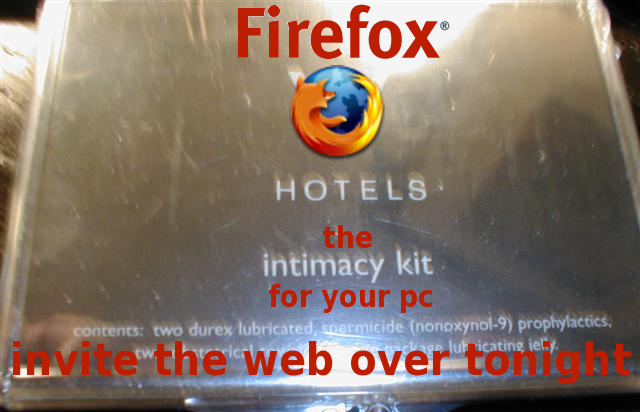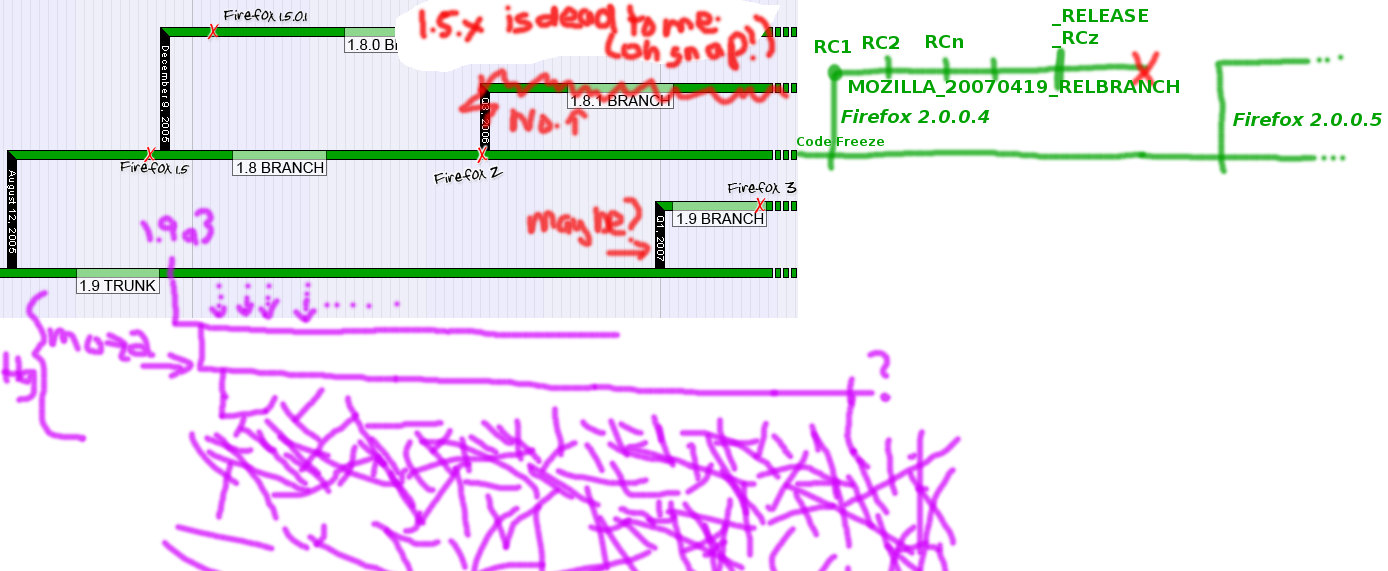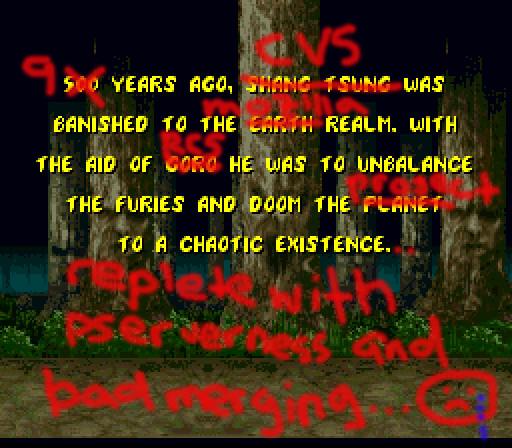I made a post last week, ostensibly about my experiences with Google Wifi. It was actually about much more.
It had an umlaut in the title, so I wasn’t entirely surprised when it didn’t show up on Planet.m.o, thinking maybe foreign languages caused inter-Planetary indigestion.
After some debugging, we found that Planet’s parser was indeed crashing, but not on my blog.
I filed a bug to track the issue and within minutes—go go Gadget Mozilla Community—an… interesting configuration change was pointed out.
This change, which turned out to be the reason my post didn’t make its way onto Planet, raises a couple of important issues which, from what I can tell, haven’t really been raised or addressed heretofore:
The first is how editorial changes are made on planet.m.o, and how those changes get communicated, not only to those publishing to the feed, but to those reading it.
In my case, I was not notified that Planet’s seemingly de facto (and sole) editor, Tim Rowley, had added the filter.1 I’m not entirely sure how planet filtering works,2 so adding filters to my blog without telling me effectively removed my blog from Planet’s feed, because there’s no way I would know which “magical keywords” I needed to use to get my content onto Planet now.
In looking at the (admittedly short) planet.m.o config history, it looks like I’m not the only one who’s been silently censored: numerous people have been completely removed from Planet, without being given any notification or even a detailed explanation.3
In the bug, others have noticed community members’ blogs missing from the Planet feed, which begs the question: just how many blogs were removed because a single person decided the content contained in those blogs wasn’t what he (or his office4) was interested in reading?
It leaves me wondering “how much content, Mozilla-related, or otherwise am I missing from members of our community?”
The second obvious issue this raises is “What content is appropriate for Planet.m.o,” and, slightly related, “How do we enforce that content policy?”
Obviously, this is a fairly gray line, with lots of opinions on the subject.
For myself, I write about a myriad of subjects, which tend to fall into “very Mozilla-related,” “technology/web-industry related,” and “not-at-all Mozilla-related.”
Personally, I enjoy reading content on Planet that isn’t necessarily (or maybe not directly) Mozilla-related; I see Planet as a community resource that illustrates the Community—what its working on, what its interested in and worried about, its trials and successes, how it relieves stress, what big changes are happening in people’s lives that may affect the community—not merely the browser-and-related-projects and the code-that-goes-in-one-end and the bits-that-come-out-the-other.
Surely we could reduce Planet.m.o to a listing of fixed bugs and posts about what features we’re working on and when releases are available. But doing so would remove the human face of our work, sucking the humanity out of the Mozilla Project. A feed that lacks these elements would serve to imply that we’re all just a bunch of code-robots, hacking 24 hours a day, who don’t [need to] have families or hobbies, who don’t [need to] require sleep, and who don’t need to be treated like we have lives outside of our work on Mozilla.
Not only would that be a tragic and depressing face to put on our project, it would be an insulting one.
I understand that not everyone may agree with me, though. For my own part, I have often written about topics not particularly Mozilla-related. I’ve continued to write about these because I’ve received numerous comments on IRC and in person saying they really liked a particular post. Sometimes it’s been about why Digg and Slashdot users screw us. Sometimes it’s been about flying.6
To be clear, I’m not saying that a more open policy of content on a space like planet.m.o does not require some consideration and respect for the forum their content is being featured in. I take special care to my non-Mozilla related posts in the “extended post” section, making it easy to skip over if the first paragraph doesn’t grab your attention.7
In some cases, I try to use the same title, so it’s really easy to skip in the feed reader. This is not about forcing people to read content they don’t want to read. And you can be sure that if I’d gotten a couple of “Geez, man… stop with the stupid open letters“- or “I really hate your Gimp Art ™“-comments, I would’ve found another outlet for that particular content. But that hasn’t been the case.
In fact, it’s been quite the contrary.
Immaterial of the feedback from readers in the Community, I find myself experiencing a paralysis over writing anything now. It’s been communicated—without being given the respect of being emailed or otherwise talked to— that I’m “allowed” to write about Mozilla, Firefox, Gecko, and Tunderbird. I find myself thinking “Well, I don’t really have anything to say about those four specific topics. So I guess I won’t bother writing anything,” mostly for fear that this stuff really is boring and no one wants to read it.
That’s a [hopefully?] unintended chilling effect of someone striving for “a lightweight process,” but it nonetheless exists, and it’s not very pleasant.
I’m not exactly sure how we’re going to solve the problem; there are lots of possible solutions8, but I am sure of one thing: the silent filtering and dropping of content needs to stop.
The unilateral implementation of editorial policy that has not been discussed and is not posted anywhere needs to stop.
And the conversation about what’s appropriate for our community needs to be had, not avoided.
We’re the Mozilla Project; we have a history of doing better, and we can do better.
__________________________
1 But, being among only three people being filtered, I guess I’m in good company.
2 Does it filter subject titles? Tags? Posts? Blog comments? What? I actually spent some time Googling for this, and never did find a clear explanation.
3 In Pink’s case, it is especially ironic that every single post he’s made since he was removed for “very little Mozilla content” has been about Camino and/or Mozilla.
4 Pinkerton refers to a scary situation “when voices in the community can be turned off like a faucet at the whim of people at a corporation.” I think this is somewhat confusing, because when we talk about “a” or “the Corporation,” we’re typically referring to the Mozilla Corporation. Tim Rowey works for IBM, not MoCo.5
5 And I think it needs to be said: I have no doubt in my mind that there would be rioting in the virtual-streets if someone at MoCo were asserting this level of editorial control-without-input over a resource like Planet.
6 But if you read between the lines, it’s actually not, which is why people said they like it; it actually applied to the Mozilla project in a usually-tangential way.
7 Which, of course, turns out to make it a [useful] challenge for me, the writer, to grab your attention, using only a single paragraph!
8 This whole problems screams out for a solution addressed by that Web 2.0-ey concept of semantics; this seems like a solved problem, what with tags and feed readers that can filter, based on tags. I would gladly tag my posts with an agreed-upon tag, so that those not wanting the strictly-not-Mozilla-stuff could filter. In fact, I already do, but “blahblahblah” isn’t a very standard tag. ![([Mm]ozilla[^z]|[Ff]irefox|[Gg]ecko|[Tt]underbird) ;-)](/blog/images/smilies/icon_wink.gif)




